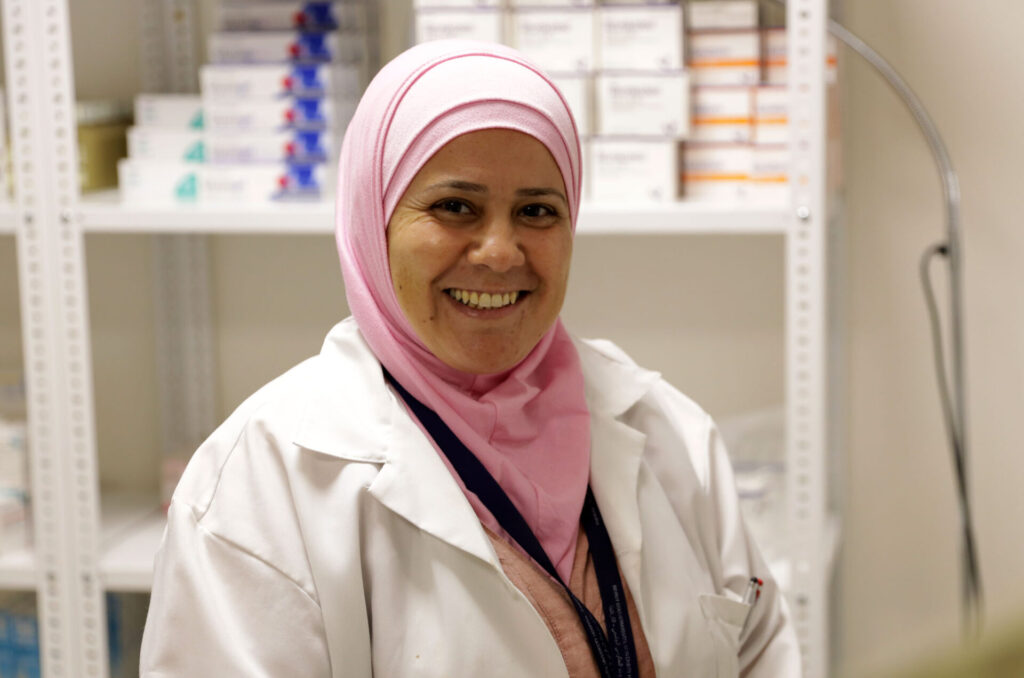Jun, 2011
Iman Mfarrej is a volunteer for Anera’s disabilities program in Sukhneh Camp, Jordan.
She recalls an image that’s imprinted on her mind, which motivates her. “There was a young girl around the age of 20 crawling on the floor of her house. The house was very old and its center had no ceiling. It was raining so hard and the floor was freezing cold, and covered with rain water.” Through her work, Iman has discovered other severe cases of hemiplegia, as well as quadriplegia, which affects the lives of many children in Sukhneh Refugee Camp.
In partnership with the Holy Land Institute for the Deaf, Anera’s Screening and Rehabilitation for Disabled Persons program in Sukhneh Camp aims at identifying disabilities like hearing, visual, physical and intellectual/mental impairments and quickly addressing urgent needs, whether offering crutches, wheelchairs, eye-glasses, hearing aids, or even physiotherapy.
Iman herself discovered her son, now four, has a slight motor impairment. She began to suspect something was wrong when her son delayed taking his first steps. She had him examined by a few doctors. A few assured her there was nothing wrong with his slow start. A protective and well-learned mother, Iman consulted other doctors and soon discovered that her son suffered from a tendon problem in his legs.
“When taking him to physiotherapy sessions – and I’ve been to so many with him -I see other kids with all sorts of motor impairments and disabilities in need of assistance and care, and so I always feel like helping out kids with physical impairment,” Iman explains. “This is the main reason behind my decision to volunteer in this program.”
Iman, along with seven other young women volunteers, has been trained through Anera about these four types of disabilities, as well as how to conduct home visits to help as many people as possible, especially kids, to overcome their disabilities and lead productive lives.
There were several cases of quadriplegia, where kids were not able to walk, stand or sit properly. Their parents usually try to help them right after discovering their disabilities, but there’s no center here and after paying a few visits to the nearest hospital, they usually just give up. Like any other parent, they like to see their children healthy and happy, but they simply can’t afford the care.
Trips to the doctor and physiotherapy are something many poverty-stricken parents can’t afford on a regular basis. That can hinder the development of their disabled child or stop it altogether. Children end up with entangled legs and arms and severe muscle atrophy, and just sitting on the floor at home in front of a television screen all day.
Iman and a volunteer partner have visited 12 households and discovered 18 disability cases. She has taken two rounds of training and is looking forward to learning about physiotherapy so she can help the physically disabled people of her camp improve their physical and emotional health.


